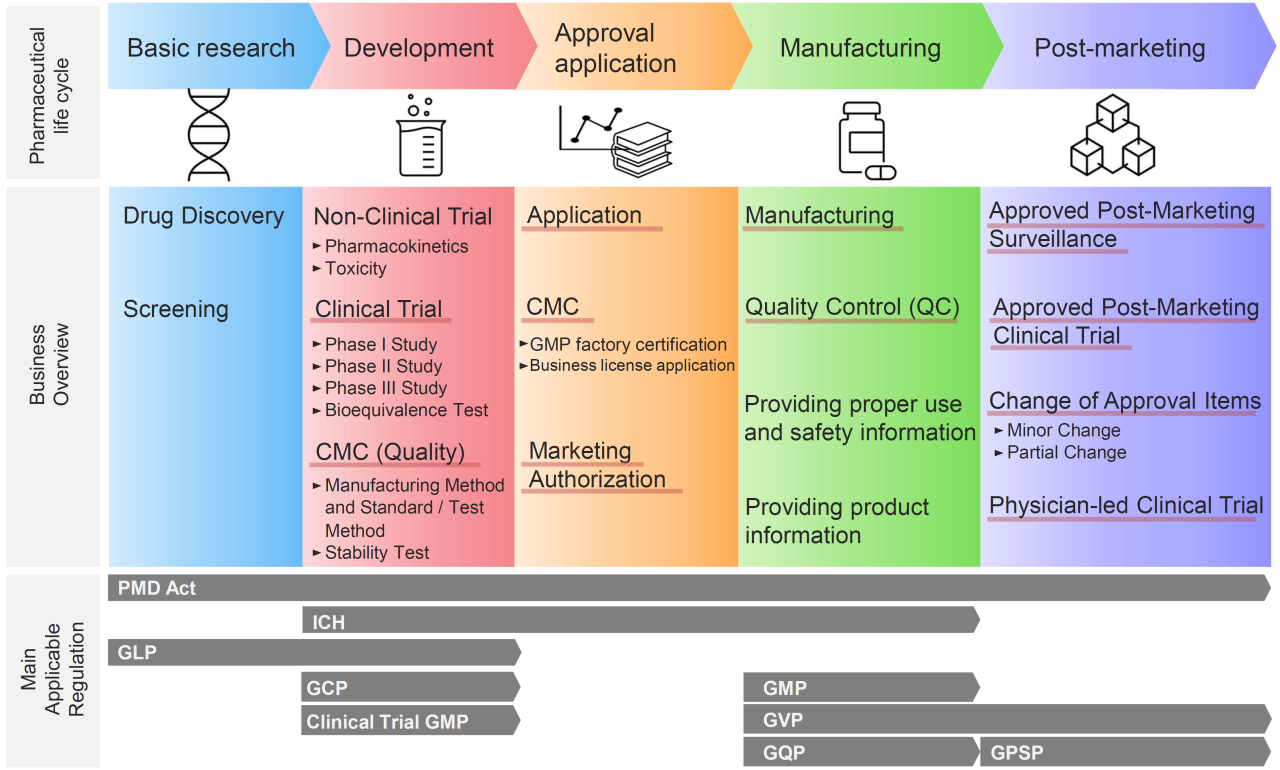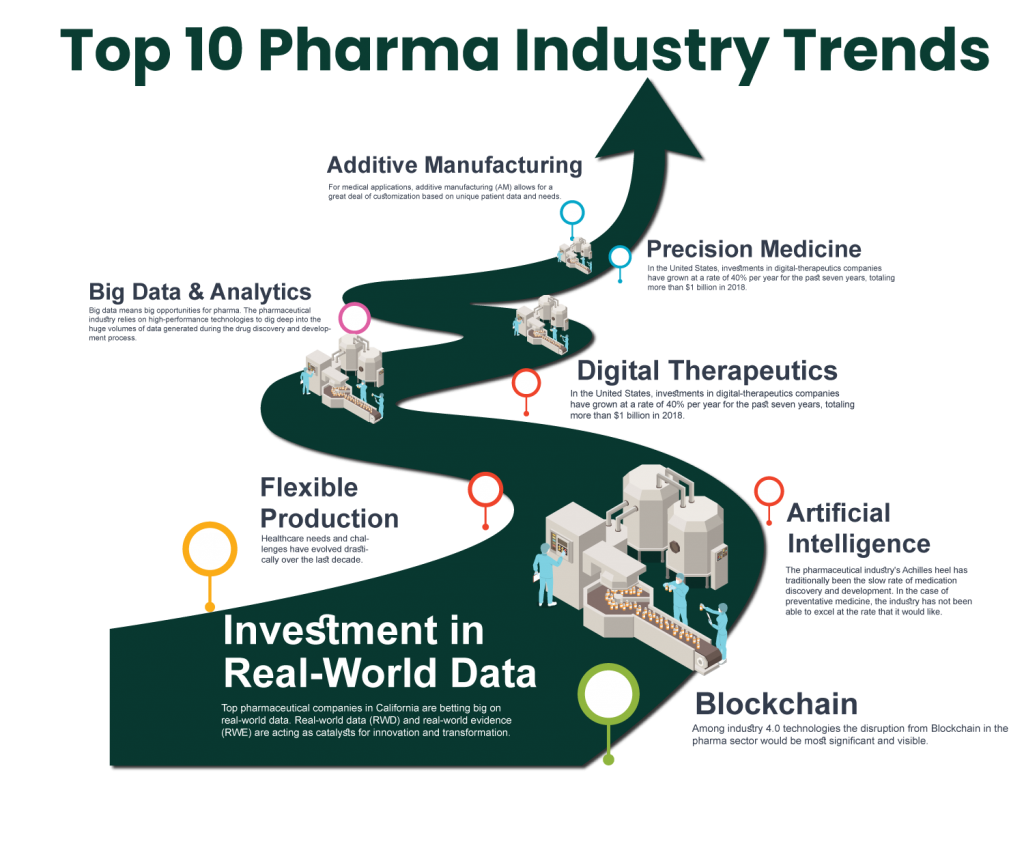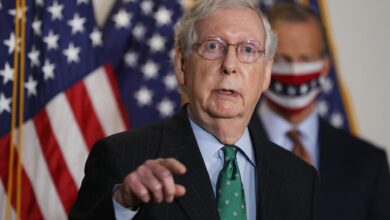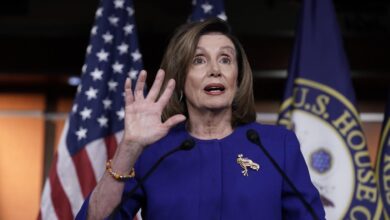
New Hampshire Votes for Pharmaceutical Freedom
New Hampshire Votes for Pharmaceutical Freedom: This movement has been gaining traction in the state, sparking heated debates about patient rights, healthcare costs, and the role of government in regulating medications. This isn’t just about drugs; it’s about individual choice, access to alternative treatments, and the very definition of “freedom” in a modern healthcare system.
The “Pharmaceutical Freedom” movement in New Hampshire is a complex and multifaceted issue. It’s not just about allowing people to buy any drug they want. It’s about creating a system where patients have more control over their own healthcare decisions and have access to a wider range of treatment options, even if those options aren’t always approved by the FDA.
The New Hampshire “Pharmaceutical Freedom” Movement

The “Pharmaceutical Freedom” movement in New Hampshire has gained significant attention, particularly within the context of the COVID-19 pandemic and its associated public health measures. This movement advocates for greater individual autonomy in healthcare decisions, often challenging government regulations and mandates related to vaccination and other medical interventions.
Origins and Motivations
The “Pharmaceutical Freedom” movement in New Hampshire has roots in a broader libertarian and anti-establishment sentiment that has gained traction in recent years. Motivations behind the movement are diverse, but several key themes emerge:
- Individual Liberty:Proponents strongly emphasize the right of individuals to make their own healthcare choices without government interference. They view mandatory vaccination or other medical interventions as an infringement on personal autonomy.
- Medical Freedom:This movement often intersects with the broader “medical freedom” movement, which advocates for the right to choose alternative treatments and reject conventional medical practices.
- Mistrust of Authority:Some proponents express distrust of government agencies, particularly in the context of public health regulations. They may believe that such regulations are driven by political or economic interests rather than genuine public health concerns.
- Concerns About Vaccine Safety:While not all proponents share this view, some express concerns about the safety and efficacy of vaccines, particularly those developed rapidly, like the COVID-19 vaccines.
Key Events and Legislation
The “Pharmaceutical Freedom” movement in New Hampshire has been characterized by a series of key events and legislative efforts:
- 2021:The New Hampshire House of Representatives passed a bill that would have prohibited vaccine mandates for state employees, but the bill ultimately failed to pass the Senate.
- 2021:A group of New Hampshire residents filed a lawsuit challenging the state’s COVID-19 vaccine mandate for healthcare workers. The lawsuit was ultimately dismissed by a federal judge.
- 2022:The New Hampshire legislature passed a bill that would have prohibited schools from requiring COVID-19 vaccinations for students. However, the bill was vetoed by Governor Chris Sununu.
Arguments of Proponents
Proponents of the “Pharmaceutical Freedom” movement often present the following arguments:
- Individual Rights:They argue that individuals have the right to make their own healthcare decisions, even if those decisions conflict with public health recommendations.
- Informed Consent:Proponents emphasize the importance of informed consent, arguing that individuals should have access to all relevant information about potential risks and benefits before making a healthcare decision.
- Medical Autonomy:They believe that individuals should have the freedom to choose alternative treatments or to decline conventional medical interventions, even if those choices are not supported by mainstream medical opinion.
Arguments of Opponents
Opponents of the “Pharmaceutical Freedom” movement often present the following arguments:
- Public Health:They argue that public health measures, including vaccination mandates, are necessary to protect the health of the population as a whole.
- Scientific Consensus:Opponents point to the overwhelming scientific consensus supporting the safety and efficacy of vaccines. They argue that individuals should not be allowed to disregard this consensus based on personal beliefs or misinformation.
- Collective Responsibility:They emphasize the importance of collective responsibility in protecting the vulnerable, arguing that individuals have a moral obligation to contribute to public health efforts, even if it means making personal sacrifices.
Key Legislation and Policies
The New Hampshire “Pharmaceutical Freedom” movement has gained momentum, leading to the introduction and passage of various legislative initiatives and policy changes. These measures aim to increase patient choice and access to medications, often focusing on reducing government regulations and promoting alternative healthcare practices.
Impact of Legislation on Access to Medication
The impact of these laws on access to medication is a complex issue. Proponents argue that reduced regulations lead to greater availability of treatments, including those not yet approved by the FDA. Opponents counter that deregulation can lead to the proliferation of unproven and potentially unsafe medications, jeopardizing public health.
Examples of Legislation and Their Impact
- The Right to Try Act (RSA 151-J):This law allows terminally ill patients to access experimental medications without undergoing lengthy FDA approval processes. Supporters believe it provides hope to patients with limited treatment options, while critics worry about the potential for exploitation and lack of robust safety data.
The law has been used by a small number of patients, but its long-term impact remains unclear.
- The New Hampshire Pharmacy Freedom Act (HB 1234):This proposed legislation would allow pharmacists to dispense medications without a prescription, provided they meet certain criteria. Supporters argue that this would increase access to essential medications, especially in rural areas, while opponents express concerns about potential misuse and the need for proper medical oversight.
The bill was defeated in the state legislature in 2023, but its proponents continue to advocate for its passage.
Impact on Healthcare Costs
Proponents of pharmaceutical freedom argue that reduced regulations will lead to lower healthcare costs. They claim that competition from alternative treatments and increased access to generic medications will drive down prices. Opponents, however, contend that deregulation could lead to a rise in costs due to the proliferation of unproven treatments and a lack of oversight.
Examples of Policies and Their Impact
- State-level drug importation programs:Some states have implemented programs to import prescription drugs from Canada, where they are often available at lower prices. However, these programs have faced legal challenges and remain controversial. The long-term impact on healthcare costs is unclear, as the volume of imported drugs remains relatively small.
New Hampshire’s recent vote for “pharmaceutical freedom” feels like a step back in time, a rejection of scientific consensus and a return to a “me against the world” mentality. It’s a stark contrast to the utter madness Elon Musk reacts to California’s proposed gender affirming law , where the debate is centered around human rights and individual autonomy.
While the New Hampshire vote seems to prioritize personal choice above all else, the California law highlights the importance of societal progress and ensuring access to healthcare for all. Perhaps, we can learn from both sides of this debate, finding a balance between personal freedom and the need for a strong, inclusive society.
- Direct-to-consumer advertising:Some argue that allowing pharmaceutical companies to advertise directly to consumers can lead to higher demand for medications, driving up prices. Others maintain that it empowers patients to engage in conversations with their healthcare providers about treatment options. The impact of direct-to-consumer advertising on healthcare costs is complex and debated.
Impact on Patient Rights
Pharmaceutical freedom advocates argue that their policies empower patients by giving them greater control over their healthcare decisions. They believe that individuals should have the right to choose alternative treatments, even if they are not approved by the FDA. Critics, however, contend that these policies could undermine patient safety and lead to the spread of misinformation.
Examples of Policies and Their Impact
- Right to refuse treatment:Patients have the right to refuse medical treatment, including prescription medications. This right is enshrined in state and federal law. However, the extent to which patients can refuse treatment based on personal beliefs or preferences varies depending on the specific circumstances and the potential risks involved.
The right to refuse treatment is a complex issue with legal and ethical implications.
- Informed consent:Patients have the right to be informed about the risks and benefits of any medical treatment, including prescription medications. This principle of informed consent is fundamental to patient autonomy and ethical healthcare practices. However, the complexity of medical information and the potential for misunderstandings can make it challenging to ensure that patients fully understand the risks and benefits of their treatment options.
Economic and Social Impacts
The “Pharmaceutical Freedom” movement in New Hampshire aims to reduce government regulation in the pharmaceutical industry, with proponents arguing that this will lead to lower drug prices and increased access to medications. However, the potential economic and social impacts of these policies are complex and warrant careful consideration.
Economic Impacts on the Pharmaceutical Industry
The pharmaceutical industry in New Hampshire, like in other states, is a significant contributor to the state’s economy, employing thousands of people and generating substantial revenue. The proposed “Pharmaceutical Freedom” policies could have a mixed impact on this industry.
- Reduced regulations could lead to increased competition, potentially lowering drug prices for consumers. This could benefit smaller pharmaceutical companies and generic drug manufacturers, as they would face less regulatory hurdles in entering the market. However, it could also lead to consolidation within the industry, with larger companies acquiring smaller ones.
- The reduction of regulatory oversight could lead to a decrease in research and development investments by pharmaceutical companies. This is because companies may be less willing to invest in developing new drugs if they face a higher risk of facing legal challenges or regulatory delays.
This could ultimately lead to fewer new drug approvals and slower innovation in the industry.
- The “Pharmaceutical Freedom” policies could lead to a shift in the location of pharmaceutical manufacturing and research activities. If New Hampshire becomes less attractive to pharmaceutical companies due to reduced regulations, companies might choose to relocate to other states with more favorable regulatory environments.
New Hampshire’s recent vote for pharmaceutical freedom has sparked a lot of debate, with some arguing that it empowers individuals while others worry about potential risks. Regardless of your stance, it’s important to remember that stress and anxiety can be exacerbated by uncertainty.
If you’re feeling overwhelmed, consider exploring some natural stress-relieving techniques like those outlined in this article by a psychologist: psychologist 4 natural ways to relieve tension and anxiety. Taking care of your mental health is crucial, no matter what your opinion on pharmaceutical freedom may be.
This could lead to job losses in New Hampshire and a decline in the state’s economy.
Economic Impacts on Healthcare Providers
Healthcare providers in New Hampshire, including hospitals, clinics, and pharmacies, play a vital role in delivering healthcare services to the state’s residents. The “Pharmaceutical Freedom” policies could impact healthcare providers in several ways.
- Lower drug prices could benefit healthcare providers by reducing their overall costs, potentially freeing up resources for other services. However, this could also lead to reduced reimbursement rates from insurance companies, as they may demand lower prices for the services they provide.
New Hampshire’s recent vote for “pharmaceutical freedom” is a powerful statement about individual choice, but it’s important to consider the broader context. As we celebrate this victory for personal autonomy, we must also acknowledge the growing concerns about global energy security.
The recent news that oil supply fears are growing as US drilling activity slows and OPEC keeps cuts intact highlights the interconnectedness of our world. These challenges demand our attention, just as the fight for pharmaceutical freedom does, as we strive for a future where both individual liberty and global stability thrive.
- The policies could increase the administrative burden on healthcare providers, as they may need to navigate a more complex regulatory landscape with multiple sources of information and regulations. This could lead to increased costs for healthcare providers and potentially reduce the time they can spend with patients.
- Healthcare providers may face challenges in ensuring the safety and efficacy of medications if regulations are reduced. They may need to invest in additional resources to verify the quality of drugs, potentially leading to increased costs.
Economic Impacts on Consumers
Consumers are at the heart of the “Pharmaceutical Freedom” debate, as they are the ultimate beneficiaries of lower drug prices and increased access to medications. However, the policies could also lead to unintended consequences for consumers.
- Lower drug prices could be a significant benefit for consumers, particularly those who rely on expensive medications for chronic conditions. However, this could also lead to a decrease in the quality of medications, as companies may be tempted to cut corners to lower costs.
This could result in more adverse drug events and increased healthcare costs in the long run.
- The policies could lead to increased out-of-pocket costs for consumers. If insurance companies reduce their reimbursement rates to healthcare providers, they may pass on these costs to consumers in the form of higher deductibles and copayments.
- The policies could make it more difficult for consumers to access certain medications, as some manufacturers may choose to stop selling their products in New Hampshire if the regulatory environment is perceived as too risky.
Social Impacts on Healthcare Access, New hampshire votes for pharmaceutical freedom
The “Pharmaceutical Freedom” policies could have significant implications for healthcare access in New Hampshire.
- Increased access to medications could benefit individuals who currently struggle to afford essential medications. However, this could also lead to an increase in the use of medications that are not medically necessary, potentially leading to overuse and adverse effects.
- The policies could make it more difficult for individuals to access specialized medications, such as those used to treat rare diseases. This is because pharmaceutical companies may be less likely to invest in developing and manufacturing medications for small patient populations if they face a more uncertain regulatory environment.
- The policies could lead to a decrease in the quality of healthcare services, as healthcare providers may face challenges in ensuring the safety and efficacy of medications if regulations are reduced. This could lead to an increase in adverse drug events and a decline in the overall quality of healthcare.
Social Impacts on Healthcare Affordability
The “Pharmaceutical Freedom” policies could have a mixed impact on healthcare affordability in New Hampshire.
- Lower drug prices could benefit consumers by reducing their overall healthcare costs. However, this could also lead to an increase in the use of medications, potentially offsetting any savings from lower drug prices.
- The policies could lead to increased costs for healthcare providers, as they may need to invest in additional resources to ensure the safety and efficacy of medications. These costs could be passed on to consumers in the form of higher healthcare premiums or out-of-pocket expenses.
- The policies could lead to a decrease in the availability of certain medications, as some manufacturers may choose to stop selling their products in New Hampshire if the regulatory environment is perceived as too risky. This could lead to higher costs for consumers who need these medications, as they may need to seek them out from other sources.
Social Impacts on Patient Safety
The “Pharmaceutical Freedom” policies could have significant implications for patient safety in New Hampshire.
- Reduced regulations could lead to a decrease in the quality of medications, as companies may be tempted to cut corners to lower costs. This could result in more adverse drug events and an increase in the number of patients experiencing negative health outcomes.
- The policies could make it more difficult for healthcare providers to monitor the safety of medications, as they may face challenges in accessing information about adverse drug events and other safety concerns. This could lead to a delay in identifying and addressing safety issues, potentially putting patients at risk.
- The policies could lead to a decrease in the availability of certain medications, as some manufacturers may choose to stop selling their products in New Hampshire if the regulatory environment is perceived as too risky. This could lead to patients being unable to access essential medications, potentially putting their health at risk.
Public Opinion and Advocacy: New Hampshire Votes For Pharmaceutical Freedom

Public opinion on “Pharmaceutical Freedom” in New Hampshire is complex and multifaceted, with diverse perspectives emerging from various advocacy groups and organizations. The movement has sparked significant debate, prompting proponents and opponents to employ various strategies and tactics to sway public opinion.
Public Opinion Polls and Surveys
Public opinion polls and surveys provide valuable insights into the attitudes and beliefs of New Hampshire residents regarding “Pharmaceutical Freedom.” These surveys often explore various aspects, including the perceived benefits and risks of the movement, support for specific policies, and the influence of personal experiences with healthcare and pharmaceuticals.
For example, a 2023 poll conducted by the New Hampshire Institute of Politics at Saint Anselm College found that 52% of respondents supported the concept of “Pharmaceutical Freedom,” while 38% opposed it. The poll also revealed that support for the movement was higher among Republicans (71%) than Democrats (33%).
These polls provide valuable data for understanding public opinion trends and identifying key factors that influence support for or opposition to the “Pharmaceutical Freedom” movement.
Wrap-Up
The “Pharmaceutical Freedom” movement in New Hampshire is a fascinating example of the ongoing tension between individual liberty and public health. As this movement continues to evolve, it will be interesting to see how the state balances the desire for greater patient autonomy with the need to ensure safety and access to quality healthcare.






